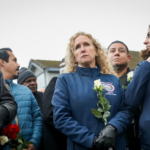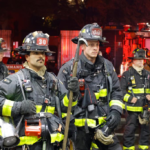Tuesday,
February 11, 2025
Year : 2, Issue: 24
by Syed Badrul Ahsan
On Jan 24, 1969, the movement to force the Ayub Khan regime from power gathered pace when young school student Matiur Rahman and a rickshaw puller were shot down by the police on the streets of Dhaka. It was one more sign of the regime’s increasing nervousness, especially in East Pakistan, where a popular uprising against a 10-year dictatorship was swiftly beginning to take shape. Ironically, the self-styled Field Marshal Mohammad Ayub Khan and his government had just come through a raucous observance of what they called a Decade of Progress, the reference being to the ten years of Ayub’s grip on power.
In January 1969, all the portents of doom were there for the regime. All the prognostications pointed to the coming fall of a civil-military complex that was unable to hold back the popular urge for democracy in Pakistan. Four days prior to the murder of Matiur, the young Asaduzzaman had been killed in police fire. Desperation was at work, given that people in both East and West Pakistan were beginning to get restive, demonstrating every sign of wanting a change. In Dhaka, it was already becoming clear that the trial of Sheikh Mujibur Rahman and 34 other Bengalis in the Agartala Conspiracy Case was beginning to unravel.
Students of Dhaka University had come together to form the Sharbadoliyo Chhatra Shongram Parishad, determined to articulate their Eleven Points. And, of course, the Six Points publicly announced by Sheikh Mujibur Rahman in February 1966 in Lahore formed the centerpiece of the revolt against entrenched authority. And into the picture came the fiery maverick Moulana Andul Hamid Khan Bhashani. Having in the early 1960s advised the country not to disturb Ayub owing to the latter’s growing closeness to Mao’s China, Bhashani was now a powerful voice in defence of the popular urge for a restoration of democracy.
In January 1969, East Pakistan was an image of unstoppable revolt. A thousand miles to the west, the other part of Pakistan devised its own, and similar, means of protest. Students in Peshawar, Karachi and Lahore, in a manner that was as unprecedented as it was welcome, voiced their gathering fury through the streets and broad avenues of the cities. Khan Abdul Wali Khan and Zulfikar Ali Bhutto, the latter a lapsed protégé of Ayub Khan, were in prison, having injected energy into the demand for change. In effect, by the time the Mass Upsurge took a definitive shape in Dhaka, an entire country was out on the streets clamouring for change.
The demand for change had earlier been made more insistent through the entry into national politics by Air Marshal Asghar Khan and Justice SM Murshid. A rather surprised opposition, comprised of such politicians as Nawabzada Nasrullah Khan, Chaudhry Mohammad Ali, Nurul Amin and Abul A’ala Maududi, rose to the need of fast moving times through forming the Democratic Action Committee (DAC). The Ayub regime was eerily unable to comprehend the causes behind the uprising — it was a sign of its inability to read the writing on the wall — and the president went around asking his advisers why people were not grateful for the “progress” made in the ten years of his rule. He was already planning to seek a fresh term in office in 1970. Meanwhile, the incarcerated Bhutto too had made it known he would challenge his erstwhile mentor at the election.
Mass Upsurge Day in January 1969 was thus a defining moment in history, especially in the territory that would eventually emerge as the independent republic of Bangladesh. With demands increasingly being made for the withdrawal of the Agartala Case and the release of Sheikh Mujibur Rahman, the regime felt unable to ward off the pressure. Its alienation was deep, and deepened when the academic Zoha was murdered in yet one more instance of reckless police action in East Pakistan. The entirety of East Pakistan was a loud symbol of protest, with Bhashani publicly advocating a policy of resistance against the regime. Ayub Khan and his ministers were compelled to reach out to the opposition. The DAC was asked to nominate its representatives to a round table conference in Rawalpindi in February.
The regime offered to free Mujib on parole to enable him to join the RTC, an offer the imprisoned Awami League chief rejected with disdain. On the streets of Dhaka and other cities in East Pakistan, students and citizens across the spectrum marched to demand his unconditional release, a demand echoed by an increasingly fiery Bhashani. The early signs of the regime’s coming capitulation emerged when Wali Khan and Bhutto were released in mid-February. In Dhaka, the government went for a self-inflicted blow on its fraying reputation when the army killed Sergeant Zahurul Haq, one of the Agartala case accused, in the cantonment. The flames of popular resistance leapt higher, forcing the chief presiding judge in the Agartala Case trial, SA Rahman, to flee to West Pakistan.
Sheikh Mujibur Rahman and his co-accused were freed on Feb ww through an announcement in Dhaka by Vice Admiral AR Khan, the regime’s minister of defence. Mujib’s political ascendancy was complete when the next day, at a million-strong rally at the Race Course, he was publicly honoured as Bangabandhu — friend of Bengal. On Feb 24 1969, he travelled to Rawalpindi to take his place at the RTC. Asked by newsmen at Chaklala airport for his comments on his changed circumstances, Bangabandhu had a six-word response: “Yesterday a traitor, today a hero.” At the airport to welcome him was Asghar Khan.
The round table conference, following its inaugural session, was adjourned to early March, when Bangabandhu made it clear that while parliamentary elections and adult franchise were necessary, for the people of East Pakistan the future would come in the more substantive form of his Six Point programme of regional autonomy. Meanwhile, Bhutto and Bhashani, having decided to stay away from the RTC, sealed their own pact on what needed to be done. The RTC collapsed, albeit after Ayub Khan’s agreement to the restoration of parliamentary democracy and adult suffrage. Sheikh Mujibur Rahman, outraged by the reluctance of his opposition colleagues to support his political position, pulled the Awami League out of the DAC and returned to Dhaka. The DAC, without the Bengali leader as part of it, quickly collapsed.
Interestingly, just how much of a change had come over Pakistan in those dying days of Ayub Khan’s authoritarian government could be understood by the offer of prime ministerial office he made to Bangabandhu over a private dinner. Predictably, Bangabandhu dismissed the offer out of hand. Meanwhile, the army, led by General Yahya Khan, was already manoeuvring to send Ayub out to pasture and seize power. It did not occur to the weakened Ayub that under the constitution his regime had framed in 1962, in the event of the death or incapacity or resignation of the President, power would pass into the hands of the speaker of the National Assembly. In the end, on Mar 25 1969, Mohammad Ayub Khan transferred power not to Speaker Abdul Jabbar Khan but to the commander-in-chief of the Pakistan army, General Agha Mohammad Yahya Khan. The new general in power promptly clamped martial law on the country.
The rest is history. The Mass Upsurge of 1969 would open the floodgates to demands in East Pakistan — and it did not matter that Pakistan was in the hands of its military once again — for democracy proper and unfettered. That Pakistan was coming apart was a picture rapidly taking shape and form. In December 1969, speaking at the sixth anniversary observance of the death of Huseyn Shaheed Suhrawardy, Bangabandhu let it be known that henceforth East Pakistan would be Bangladesh.
Bengali political aspirations reached a peak through the landslide victory of the Awami League at Pakistan’s first general elections in December 1970. Garnering a whopping 167 seats in a 313-member National Assembly, Bangabandu was emphatic in his pronouncements that Pakistan’s constitution would be based on his Six Points. Even as his party prepared to deliberate on the issue on the floor of parliament, intrigue was beginning to take sinister shape in Rawalpindi yet once more. ZA Bhutto’s Pakistan People’s Party, with 88 seats, refused to attend the assembly session scheduled in Dhaka for early March 1971.
Between Mar 15 and Mar 24, 1971, political negotiations involving the Yahya Khan junta, the Awami League and the PPP in Dhaka proved abortive given that the entrenched political-military combine based in Rawalpindi had already decided on military action against the Bengalis. Yahya Khan left Dhaka stealthily on the evening of Mar 25, having ordered the army to go into action against a militant Bengali nation. The outcome was a disaster for Pakistan. Bangladesh rose on the ashes of East Pakistan in December 1971; and Bangabandhu Sheikh Mujibur Rahman, in prison in Pakistan since Mar 25 1971, returned home in triumph in January 1972.
It was an epic tale of Bengali aspirations being articulated and Bengali ambitions finding fulfilment. It all began with the Mass Upsurge taking shape in January 1969.
Author is an analyst of politics and history.







